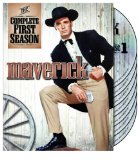| Reviews & Columns |
|
Reviews DVD TV on DVD Blu-ray 4K UHD International DVDs In Theaters Reviews by Studio Video Games Features Collector Series DVDs Easter Egg Database Interviews DVD Talk Radio Feature Articles Columns Anime Talk DVD Savant Horror DVDs The M.O.D. Squad Art House HD Talk Silent DVD
|
DVD Talk Forum |
|
|
| Resources |
|
DVD Price Search Customer Service #'s RCE Info Links |
|
Columns
|
|
|
Maverick: The Complete First Season
Magic. Maverick, truly one of the most beloved Western television series of all time, finally comes to DVD with Warner Bros.' Maverick: The Complete First Season, a 7-disc, 27-episode collection of the hit ABC anthology series' premiere 1957-1958 season. Starring James Garner in the role that would largely define his career, as well as underrated Jack Kelly (and a host of excellent supporting players), Maverick, created by TV's legendary producer Roy Huggins, is just as loose and fresh and smart-assed as it was over fifty years ago when it delighted Sunday night audiences with its ability to skip around from straight Western drama to action adventure to out-and-out comedic spoof, week after week. No extras, but the black and white transfers look quite nice, and they appear to be full-length and unedited. Must-viewing for anyone interested in the genre, the stars, or the evolution of modern television programming.
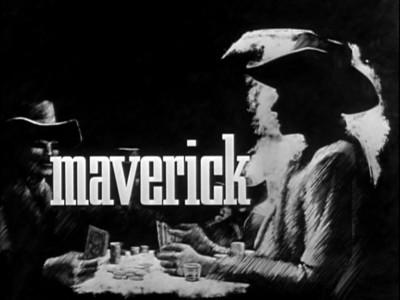
The set-up is as elusive as the Maverick brothers themselves. In post-Civil War America, handsome, dark-haired, rootless gambler Bret Maverick (James Garner) travels from saloon to river boat, from California to Texas to New Orleans to Mexico, looking for the next poker game and his next buck. Flush one minute and skint the next, adventurer Bret keeps a $1000 dollar bill safety-pinned to the inside of his coat for insurance (just like his Pappy always told him to do), while wearing a sardonic, often bemused countenance that masks a heart of gold. Bret, an expert card sharp and bluffer (and fair-to-good with a pistol, too), never cons anyone who isn't trying to con him first, and any ill-gotten gains he receives from his various ploys, he usually distributes to the swindlers' victims...after taking his cut to cover expenses, of course. Female attention is certainly welcomed by Bret, but he doesn't trust it, and he's usually proven right when the various gorgeous ladies that fall for the handsome Bret turn out to be cheats, liars, or virtuous women forced to fib to get Maverick's help in their schemes. Oh, and Bret has a brother, too: fair-haired, equally handsome, equally rootless Bart Maverick (Jack Kelly). He lives and loves the same way Bret does: with one eye on the cards and another on the exit door when a lovely temptress figures to pull a fast one on him.
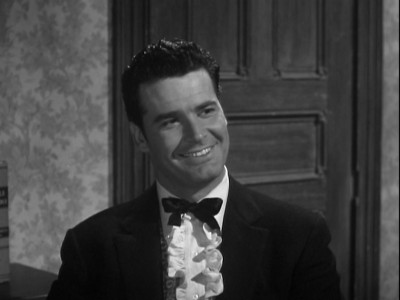

1957's Maverick, one of perennial third-place ABC's early big hits, came about at a unique crossroads for both network television and for the series' production studio, Warner Brothers. In the prior 1956-1957 season, the first "adult" Western TV series hit big with viewers, with CBS' Gunsmoke (8th in the Nielsen's for the year) and ABC's The Life & Legend of Wyatt Earp (18th) signaling to advertisers that a new trend might be in the works. Were audiences ready to respond to alternatives to the network game shows (The $64,000 Question, I've Got a Secret), variety series (The Ed Sullivan Show, Arthur Godfrey's Talent Scouts), sitcoms (December Bride, The Jack Benny Show), and dramas (The Millionaire, Dragnet, General Electric Theater) that presently ruled the Nielsen roost? At the same time, motion picture studio giant Warner Bros., shoved unwillingly into television production by TV-hating mogul Jack Warner's son-in-law, William T. Orr, scored an early success with, what else, a Western: ABC's Cheyenne, starring Clint Walker. Eager to keep the ball rolling, with last-placed ABC begging for content, Warner Bros. Television moved forward with more Westerns, including Bronco and Colt .45, but none would prove as successful as Maverick.
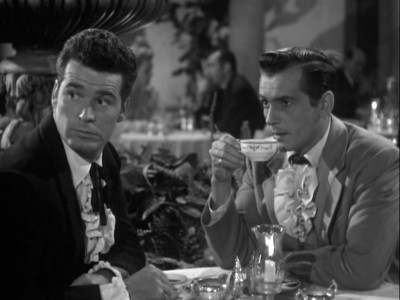
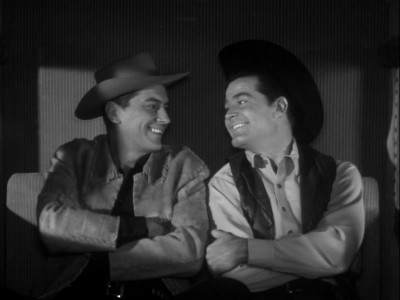
Maverick is one of those "legendary" TV titles that gets equal respect (to this day) from both critics and the viewers, something that happens less often than you would think. TV audiences back in 1957 responded immediately to Maverick's unusual shifting tone (aided by the anthology-feel of having two separate stars in their own alternating episodes), noting its relatively complex scripting, its shaded characters, and its almost indescribable atmosphere of "something new" in a particular genre, that low, buzzing, electric excitement a viewer feels when they realize they're watching something..."other" than what they've watched before. Writers and historians, in addition to extolling its scripting and performances, enjoy discussing Maverick's place among the "new wave" of TV Westerns that helped redefine the genre―and in the process, helped "grow up" American television―an evaluation made easier to grasp in Maverick's case since it's one in a series of equally "legendary" titles (77 Sunset Strip, The Fugitive, The Rockford Files) from a genuine auteur of the television medium: producer Roy Huggins.
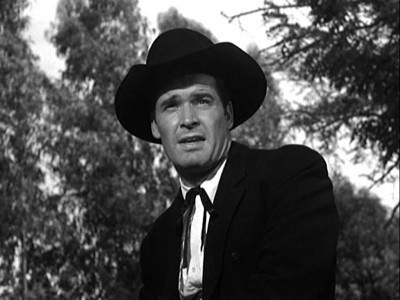
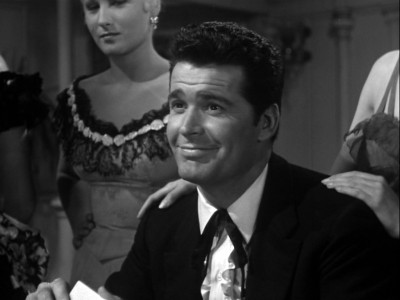
It doesn't hurt, either, that Maverick had such a troublesome production―history and mythology love a good backstory. Creator Roy Huggins was cheated out of residuals by Warner Bros. when they bumped his scripted pilot, Point Blank, to the second broadcasted episode in favor of a Warner-owned story, War of the Silver Kings, a move that made WB the "authors" of the series. A bottleneck in production forced the scrambling producers to take on a second lead, Jack Kelly, to ensure continued product, no doubt causing friction with lead Garner (two units could then film simultaneously throughout the work week). Popular star Garner would eventually sue Warner Bros. to get out of his restrictive, penurious Maverick contract (he won) and exit the show for good after the third season. Unsuccessful replacements would then come and go (James Bond's Roger Moore, for one)...before the series quickly flamed out. All of that turmoil makes for good copy, particularly when the show still turned out so well.


At this starting point in Maverick, Huggins and his writers still haven't quite worked out what overriding tone the series is going to take; Maverick isn't at its smart-assed height yet (that would come in the second season, when the ratings went through the roof, placing Maverick as the sixth most-watched show of the 1958-1959 season). They're still playing around with the characters, juggling them to find their right métier as they also accommodate the necessary (if not exactly welcomed) addition of Kelly into the show's structure. What was supposed to be a solitary character study was quickly and hurriedly morphed into an alternating two-lead anthology with occasional cross-over "two brother" episodes, while separate crews shot scenes and sequences out of order in a chaotic jumble to satisfy scheduling demands for both the studio and Garner―not exactly ideal conditions to begin an expensive new series.
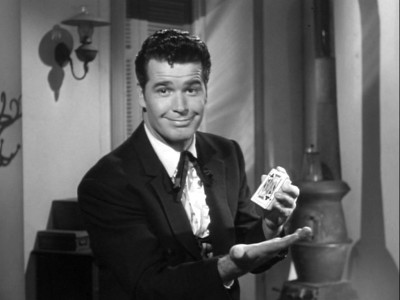
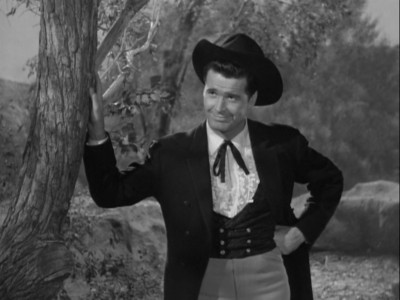
The often-quoted "anti-hero" elements that quickly became synonymous with Maverick's aesthetic aren't as nearly pronounced here, either. Bret and Bart are constantly sticking their necks out for victims and underdogs (Bret even uses law books in the first episode to help out a defendant―hardly an anti-hero act). When money is involved, the Maverick brothers usually give it away to even up the score against an unscrupulous villain―aren't anti-heroes out for only one thing: number one? They won't profit from anything out-and-out illegal (such as the opium they inadvertently buy in The Wrecker). Bret may wear a black hat, but he's no villain (Bart is even straighter), even managing to fall in honest-to-god love in Rage for Vengeance. It takes this season's final episode, Seed of Deception, for the show's true anti-hero charm to take effect; this season's good-guy swindlers Bret and Bart, always quick to lend a helping hand even if it means losing dough or putting their own lives at risk, look like Boy Scouts next to a true anti-hero like Clint Eastwood's amoral rapist thief, Man With No Name, the Western genre's next iconic figure (and a natural progression out of Maverick's increasingly modern tone, certainly).
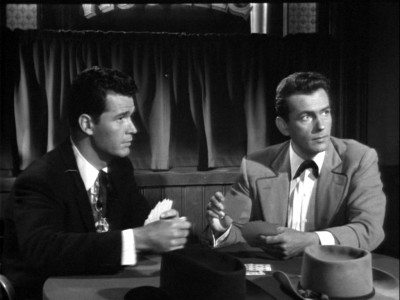
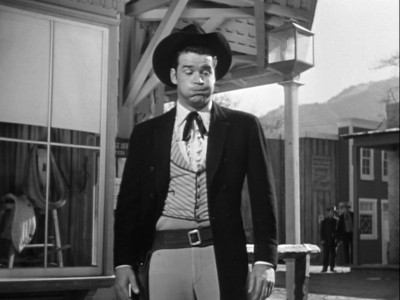
However, the seeds are there for anti-hero mythmaking in this first season of Maverick, with a markedly corrosive, knowing feel to the proceedings that openly celebrates (by humanizing and by making humorous) liars and cheats―fairly wild by 1957 network TV standards. The opening episode, War of the Silver Kings, is an excellent example. Garner's opening scene, where he wins a dice throw without even looking at it (a moment worthy of James Bond's first entrance) while propping up a drunk, would never be seen in a Roy Rogers/Lone Ranger feature ("I'm an ace/deuce," the drunk moans, to which Maverick kindly states, "There's always a natural on the bottom," as he turns over the dice). In the same episode, Bret pulls a scam to convince/bully/cajole the town's villain to behave like a good guy, and he achieves this through subterfuge and play-acting―John Wayne would have just clobbered the guy, and Matt Dillon would have shot him down in the street at high noon. Shady ladies don't fare too well in traditional Hollywood Westerns, but in Maverick, they're often tolerated, indulged, and even celebrated. In Point Blank, Bret knows all along that Karen Steele is lying to him, but he's fascinated by her open ploy: one liar intrigued by another. He tries to help her, but that doesn't stop him from ratting her out to the sheriff at the end...while giving her enough money to make a fresh start (and returning the rest to the authorities). In the fascinating Samantha Crawford character, played by the heartbreakingly beautiful Diane Brewster, Bret and Bart meet their match in a woman who's truly Maverick's most perverse, amoral anti-hero: a sexy seductress with a fake Southern accent who simply can not be trusted in anything she says or does. By later episode The Seventh Hand, Bret openly dreads meeting her again; she can best him and she's work to be around, and he knows it. Had television standards of the time allowed the exploration of this fascinating female character, Brewster's Crawford would be as lauded today as later incarnations of strong, powerful, independent women, like Francis' Honey West and Rigg's Emma Peel (why the gifted Brewster didn't have a major career I'll never know―she's completely bewitching).
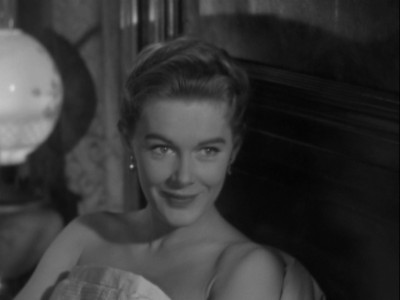
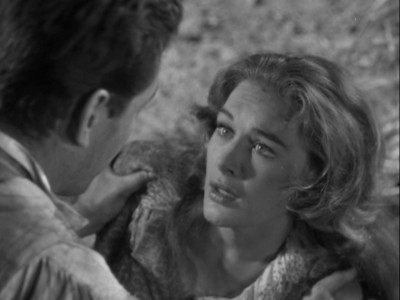
The arrival of Kelly's Bart in episode eight, Hostage, only adds to the strange fascination Maverick holds in inverting its own take on traditional Westerns. The producers obviously felt that adding Garner in filmed intros for Kelly's episodes helped the audience have a sense of continuity for the show until Kelly's newness wore off (while detractors of Kelly would say it was to give the expectant audience a little bit of Garner during his off-episodes). However, I find those intros only add one more layer of weirdo unreality to Maverick: it's just another scam that dares the audience to laugh at all of it. With Kelly in the mix, Maverick now becomes a game outside of the actual experience of watching the show, giving the viewer a chance to step back and ask which brother/actor is better? Which one is more sexy? Which one is smoother? Funnier? Who's the better scammer? The audience doesn't know which Maverick brother will pop up from episode to episode (maybe it will be both!), giving the proceedings just that much more unpredictability, that much more open and deliberately artificial dash. As for those that invariably compare Kelly unfavorably to Garner, Garner did go on to be the bigger star...but Kelly is just fine as ultra-smooth Bart. Garner may be funnier with a double-take or a one-liner, but Kelly is smoother with the cons and the girls, with a genuinely sneaky look around his classic profile that turns delightfully smarmy when he smiles at a pretty little liar (watch him in The Jeweled Gun, when he insists, to the point of sexy roughness, on taking off Kathleen Crowley's necklace). When Maverick makes the mistake in Trail West to Fury of giving us background stories for the brothers' role in the Civil War, the producer forgets that we don't want to know where Bret and Bart come from; they should just be: itinerant, somewhat amore gamblers who roam the range looking for profit and sex with no strings attached to either. I don't want to know how "noble" they once were―I want to see how much fun they are now.
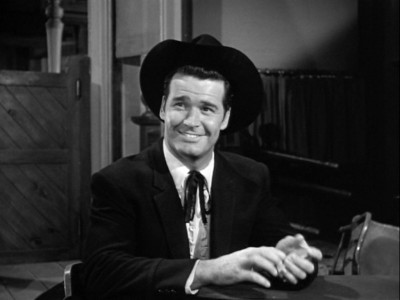

And that "fun" factor should never be taken lightly in discussions about Maverick, because it's frequently hilarious...and oftentimes in a deliciously sick, twisted way. Of course there had been other comedy Westerns on the big screen before Maverick―specifically, the amoral nastiness of Western partners Gary Cooper and Burt Lancaster in the brilliant Robert Aldrich outing, Vera Cruz, certainly must have been on Roy Huggins' radar somewhere when he contemplated where Maverick was going to go. But Maverick was the first sophisticated "comedy" Western on the tube, and it was a breath of fresh air from the grim proceedings over at Gunsmoke. In The Long Hunt, when Bret is saved by a would-be stagecoach robber, the robber turns right around and expects Bret to help him rob the coach. When Bret talks him out of it, they're promptly robbed, with the peeved gunmen incredulously yelling, "That could have been us, holding us up!"―a funny, cynical line as ironic-sounding as anything on TV today. In Relic of Fort Tejon, how does Bret repay the only woman who was truly devoted to him: a love-sick camel named Fatima? He sells her. In the lively Plunder of Paradise, heartbreaker saloon gal Ruta Lee sings a fateful Virtue Is Its Own Reward before a man is gunned down in cold blood...to which she responds, "You see? That's what killed me in show business: how do you follow an act like that?" In The Savage Hills, Bart falls hard for grifter Samantha Crawford, and we almost, almost believe she loves him, too...before her beautifully distorted nature takes over and she screws him over again when she steals everything he has (the script even has them stealing food from an Indian burial pyre, with Sam ripping off his wallet as a "fond farewell" gesture at the episode's close). This season's final outing, Seed of Deception, is a remarkably funny, tense episode, where Bret, on a whim, decides to go along with a town's misconception that he's Doc Holliday, before involving passerby Bart, too, leading the townspeople to believe he's Wyatt Earp. The reason for this open subterfuge (he does, after all, tell them he's really a Maverick...but he doesn't press the point)? He wants the turkey dinner they offer the celebrity. That's all. When a ruthless killer, cousined to the Clayton gang, shows up in town, a scared Bret and Bart hide out in a restaurant, repeatedly telling the anxious sheriff to go out there and explain they're not the notorious, famed gunmen he wants to plug. It's a beautifully-crafted, deliberately, wonderfully absurd episode, written by Montgomery Pittman, and it perfectly encapsulates what Maverick is going to become: a Western unlike any before seen on American network television.

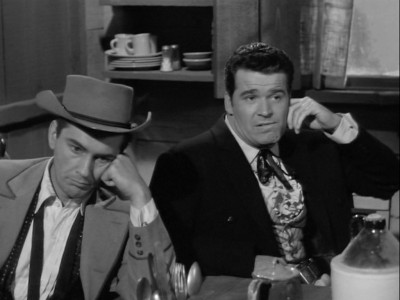
The DVD:
The Video:
Overall, the full-screen, 1.33:1 black and white transfers for Maverick: The Complete First Season look excellent, with sharp images, solid blacks, and little print damage. In Ghost Rider, there was a bit of grain that looked bad in parts, while Relic of Fort Tejon looked washed out and contrasty to me. Other than those, the transfers were more than solid (run times appear to be correct, too: right at 50:00 or a few seconds shy, which can be accounted for by missing network and studio bumpers and previews).
The Audio:
A few of the episodes on Disc four seemed a tad low in volume (The Third Rider, Rage for Vengeance), but overall, the Dolby Digital split mono audio tracks were relatively clean, with loss hiss and clear dialogue. English, French and Spanish subtitles are available.
The Extras:
The only extra is a tri-fold episode guide, with some nice stills and director/writer credits.
Final Thoughts:
Quite simply one of the most satisfying TV Westerns ever created. Producer Roy Huggins allowed Maverick to be funny one week, serious the next, and action-packed the following. However, Maverick's strange, subdued crackle of excitement comes from more than just its anthology structure: the writing is complex and at times wonderfully ironic and cynical and "modern" to our ears; the performances are preternaturally hip and wise-assed, and the overall tone is a perverted scam on the genre...and the viewer. On content alone, Maverick: The Complete First Season should get our highest rating here at DVDTalk...had there been but one notable extra included. As it stands, though, I'm highly, highly recommending Maverick: The Complete First Season.
Paul Mavis is an internationally published film and television historian, a member of the Online Film Critics Society, and the author of The Espionage Filmography.


|
| Popular Reviews |
| Sponsored Links |
|
|
| Sponsored Links |
|
|
| Release List | Reviews | Shop | Newsletter | Forum | DVD Giveaways | Blu-Ray | Advertise |
|
Copyright 2024 DVDTalk.com All Rights Reserved. Legal Info, Privacy Policy, Terms of Use,
Manage Preferences,
Your Privacy Choices | |||||||









